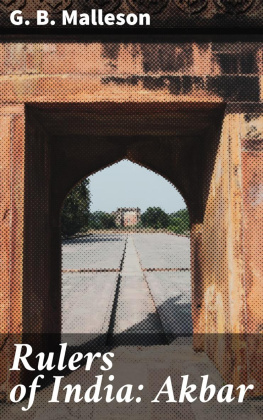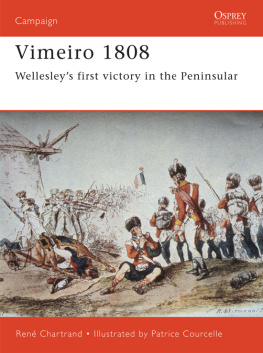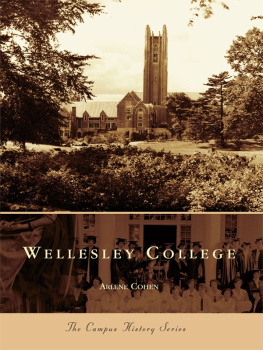This edition is published by PICKLE PARTNERS PUBLISHINGwww.pp-publishing.com
To join our mailing list for new titles or for issues with our books picklepublishing@gmail.com
Or on Facebook
Text originally published in 1895 under the same title.
Pickle Partners Publishing 2016, all rights reserved. No part of this publication may be reproduced, stored in a retrieval system or transmitted by any means, electrical, mechanical or otherwise without the written permission of the copyright holder.
Publishers Note
Although in most cases we have retained the Authors original spelling and grammar to authentically reproduce the work of the Author and the original intent of such material, some additional notes and clarifications have been added for the modern readers benefit.
We have also made every effort to include all maps and illustrations of the original edition the limitations of formatting do not allow of including larger maps, we will upload as many of these maps as possible.
STATESMEN SERIES.
LIFE OF THE MARQUESS WELLESLEY, K.G.
BY
COLONEL G. B. MALLESON, C.S.I.
NEW EDITION
PREFACE TO NEW EDITION.
NEARLY five years have elapsed since I endeavoured, in a volume of the Statesmen Series, to present to my countrymen a sketch of the varied and brilliant career of Marquess Wellesley. I endeavoured, in that sketch, to prove that it was the great Marquess who had welded into one whole the scattered portions of the British territories in India; who had given to those united portions the imperial form they have since retained; who, finding, on his arrival, that British India was only one amongst three powers, the nominal equal of each of the other two, had realised the dream of Warren Hastings by giving it absolute predominance. I showed, or at least endeavoured to show, that Wellesley alone had done it; that it was his genius which had conceived the great scheme; his knowledge of men which had selected the proper instruments to carry it into effect. I further pointed out that whilst his great qualities were recognised in India; are remembered in the southern parts of the peninsula even to the present day; his merits were admitted much more slowly in England. I endeavoured to explain this failure on the part of his countrymen to render full justice to his deserts by calling attention to the fact that in solid judgment, and more especially in prescience, he was, on all the political questions which agitated the public mind, far in advance of the majority of the politicians of the day. It was because that majority preferred the more cautious, more retrograde, and more narrow views of his brother, the Duke of Wellington, that the Marquess was compelled to fashion in the background a policy to which those who came after him gave their adhesion.
The little work was extremely well received by the critics and by the public. One writer indeed who has given a volume on the same subject to the Rulers of India Series, the Rev. Mr. Hutton, paid me the great compliment of declaring that it possessed but one faultit was too short. This is a fault which, in a series such as this, it is difficult to remedy. But the story is at least compact, and whilst it brings out, I venture to believe, the salient points of the character of the great man, and indicates his many merits, it makes no attempt to slur over his failings.
In submitting to the public a new and cheaper edition of this sketch, I am specially anxious that the larger public of the present day shall have the opportunity of studying the character of Marquess Wellesley as he was, and not as the slower intellect of his contemporaries generally represented him to have been. After critically examining the objections they have made to him as a public man I find that, reduced to a practical standard, two only remain. It is insisted that he cared too much for show, and that he loved too much to dictate to his colleagues. Both these faults, if faults they were, were the consequences of his Indian career. Whilst a most able, he was a showy, or, to use a more fitting word, he was a magnificent ruler in India. But such show, such magnificence, adapted itself to the natures of the people of India. There it was regarded as a virtue. Wellesley followed the example of the best-known and most honoured sovereigns of the Mughal dynasty, the example of Akbar, of Jahangir, of Shah Jahan. He was famous among the native princes and peoples for the splendour of his Court. And it has to be added that when such splendour is combined with success, as it was always in his case, it exercises a marvellous influence on the eyes and minds of an oriental people. As to the other charge, it must be admitted that seven years of successful policy, inspired by his own brain, had made him a dictator. It is the way of superior men, brought in contact with beings of less intelligence, to trust entirely to their own intellect, and therefore to dictate. That in England he may have been wanting in the suaviter in modo must be admitted, but no one has ever questioned his claim to the virtue expressed by the term fortiter in re.
A French writer, describing the actions and analysing the character of Marquess Wellesley, has expressed his wonder, that considering the great services he had rendered to Great Britain in India there had not been at once opened to him a career in England which would have given the country the advantage of his splendid abilities. Answering himself the question, the writer has laid down a rule of action on the part of English politicians which possesses more than a grain of truth. In England, he writes, the exercise of .-supreme power in India is not regarded as a good preparation for the exercise of constitutional power in England. Further, his [Wellesleys] advocacy of the cause of Catholic emancipation involved him in the discredit which attached to the Whig party for the same advocacy. Moreover, his glory and his importance waned before the greater glory and the greater importance attached by the general public to the services of his brother, the Duke of Wellington.
There is much truth in this criticism, incomplete as at is. What there is lacking in it will be found in this volume. It is the duty of posterity to rectify the often unjust judgment of contemporary-writers. In the hope that this little book will work steadily in that direction I commit it, in its cheaper form, to the indulgence and good judgment of a wider class of readers than that to which it was originally introduced.
C. B. MALLESON.
27, West Cromwell Road.













